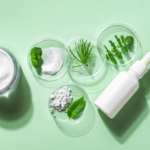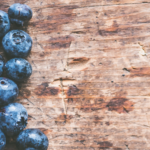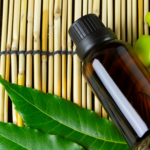For centuries, tea has been cherished as both a comforting ritual and a natural remedy. Today, with growing concerns about pesticides and additives, more people are turning to organic teas for their clean, health-focused benefits. From boosting energy and immunity to supporting heart health and sleep, organic teas provide wellness in every cup.
In this guide, we’ll explore the best organic teas for different health needs, how to brew them properly, and what makes them a smarter choice than conventional teas.
Why Organic Tea?
Unlike many crops, tea leaves are not washed after harvesting. That means any pesticide residues, chemical sprays, or additives stay on the leaves and end up in your cup. Choosing organic ensures:
-
Lower pesticide residues → safer for long-term health.
-
Cleaner ingredient lists → free from synthetic flavors, colors, and preservatives.
-
Sustainable farming → soil conservation, biodiversity, and eco-friendly practices.
See also: Organic Standards: What Qualifies a Product
Best Organic Teas for Health Benefits
From boosting energy to calming the mind, organic teas offer natural solutions for everyday wellness. Each type of tea comes with unique antioxidants, flavors, and healing properties — making it easy to find a blend that supports your health goals.
For Energy & Focus
Need a clean energy boost without the jitters of coffee? Organic teas like green tea, matcha, and yerba mate provide a balanced lift, combining natural caffeine with antioxidants and calming compounds for sustained focus.
1. Organic Green Tea
-
Contains EGCG antioxidants and a balanced mix of caffeine + L-theanine for calm alertness.
-
Supports metabolism, heart health, and cognitive function.
2. Organic Matcha
-
Powdered green tea; you consume the whole leaf.
-
Delivers higher antioxidants and smoother energy than coffee.
3. Organic Yerba Mate (technically an herbal tea)
-
Rich in caffeine and polyphenols.
-
Popular as a natural energizer across South America.
For Stress Relief & Better Sleep
When it’s time to unwind, organic herbal teas step in as natural relaxants. From chamomile to tulsi and lavender, these soothing brews help calm the nervous system and prepare the body for restful sleep.
4. Organic Chamomile
-
Known for calming nerves, reducing anxiety, and aiding sleep.
-
Also gentle on digestion.
5. Organic Tulsi (Holy Basil)
-
An adaptogen used in Ayurvedic medicine to help the body handle stress.
-
Promotes relaxation and mental clarity.
6. Organic Lemon Balm & Lavender
-
Gentle nervine herbs that calm the mind.
-
Excellent as evening blends with chamomile.
For Heart & Metabolic Health
Certain teas don’t just taste great, they also support cardiovascular wellness and metabolism. Oolong, black tea, and hibiscus are rich in compounds linked with healthier blood pressure, cholesterol balance, and fat metabolism.
7. Organic Oolong Tea
-
Partially oxidized; supports metabolism and fat breakdown.
-
Contains both theaflavins and catechins for heart health.
8. Organic Black Tea
-
Higher caffeine; great for morning focus.
-
Theaflavins may improve cholesterol and blood pressure.
9. Organic Hibiscus Tea
-
Bright red, tart, and refreshing.
-
Linked with lower blood pressure in several studies.
For Immunity & Digestive Support
A healthy gut and strong immune system start with the right herbs. Organic teas like ginger, turmeric, peppermint, and rooibos offer anti-inflammatory, anti-nausea, and digestive comfort benefits in every sip.
10. Organic Ginger Tea
-
Warming, anti-nausea, and circulation-boosting.
-
Great for colds or upset stomachs.
11. Organic Turmeric Tea (with Black Pepper)
-
Anti-inflammatory, antioxidant-rich.
-
Black pepper boosts absorption of curcumin.
12. Organic Peppermint Tea
-
Soothes indigestion and bloating.
-
Naturally caffeine-free and refreshing.
13. Organic Rooibos Tea
-
From South Africa; rich in antioxidants.
-
Caffeine-free, making it perfect for evenings.
For Antioxidant Protection
Packed with polyphenols and plant compounds, antioxidant-rich teas help protect the body against oxidative stress. White tea and pu-erh are excellent choices for boosting immunity and supporting long-term wellness.
14. Organic White Tea
-
Minimally processed, delicate, and high in polyphenols.
-
Supports skin health and overall immunity.
15. Organic Pu-erh Tea
-
Aged and fermented; earthy flavor.
-
May help balance cholesterol and improve gut health.
Quick Reference Table
| Tea Type | Caffeine | Key Benefits | Best Time to Drink |
|---|---|---|---|
| Green Tea | Low–Med | Antioxidants, focus | Morning/Midday |
| Matcha | Med | Smooth energy, detox | Morning |
| Chamomile | 0 | Relaxation, sleep | Evening |
| Tulsi | 0 | Stress relief | Any time |
| Oolong | Med | Metabolism, heart health | Afternoon |
| Black Tea | Med–High | Energy, cholesterol | Morning |
| Hibiscus | 0 | Blood pressure, heart | Any / Iced |
| Ginger | 0 | Digestive, warming | After meals |
| Turmeric | 0 | Anti-inflammatory | Any |
| Peppermint | 0 | Digestion | After meals |
| Rooibos | 0 | Antioxidant, caffeine-free | Evening |
| White Tea | Low | Immunity, skin health | Morning |
| Pu-erh | Low–Med | Gut, cholesterol | Afternoon |
Brewing Tips for Maximum Benefits
-
Mind water temperature → too hot makes green/white tea bitter.
-
Steep time matters → longer for herbal teas, shorter for caffeinated.
-
Re-steep leaves → green, oolong, and pu-erh give multiple infusions.
-
Use fresh, filtered water → improves flavor and clarity.
Safety Notes
While organic teas provide many health benefits, it’s important to remember that they still contain active compounds that may interact with certain conditions or medications. Here are key precautions:
Pregnancy & Breastfeeding
-
High-caffeine teas (like matcha, black tea, or strong green tea) should be limited as excess caffeine can affect both mother and baby.
-
Hibiscus tea may stimulate uterine activity and lower blood pressure, making it unsafe during pregnancy unless specifically cleared by a doctor.
-
Safer options include chamomile, rooibos, and ginger, though it’s best to consult a healthcare provider before adding any herbal teas regularly.
Iron Deficiency & Anemia
-
Tea contains tannins, which can reduce iron absorption from plant-based foods.
-
Those with low iron levels should avoid drinking tea with meals. Instead, enjoy it between meals to minimize interference.
-
Rooibos is naturally low in tannins, making it a gentler choice for people with iron-related concerns.
Medication Interactions
-
Turmeric and ginger teas have natural anti-inflammatory and blood-thinning effects. If you take anticoagulants (like warfarin), check with your doctor before drinking them daily.
-
Licorice root blends (sometimes found in detox or digestion teas) can raise blood pressure and affect potassium levels, so they should be avoided by people with hypertension or kidney issues.
Digestive Conditions
-
Peppermint tea, while soothing for digestion, can relax the lower esophageal sphincter and worsen acid reflux or GERD in some people.
-
Opt for chamomile or ginger instead if reflux is a concern.
Blood Pressure Considerations
-
Hibiscus tea is often praised for lowering blood pressure, but for individuals already on antihypertensive medications, it may cause blood pressure to dip too low.
-
Always monitor and consult with a healthcare professional if you’re combining hibiscus with prescribed blood pressure treatments.
Concentrated Extracts vs. Brewed Tea
-
Drinking brewed tea is generally safe, but concentrated tea extracts or supplements can sometimes cause liver stress (notably with green tea extract).
-
Stick to traditionally brewed teas for daily use unless a healthcare provider suggests otherwise.
Key takeaway: While organic teas are safe for most people, those who are pregnant, have certain health conditions, or take medications should be mindful of possible interactions. Moderation and timing (e.g., drinking between meals) are simple ways to maximize benefits safely.
Frequently Asked Questions (FAQ)
1. Is organic tea healthier than regular tea?
Yes, organic tea is generally healthier because it is grown without synthetic pesticides, fertilizers, or additives. Since tea leaves are not washed after harvest, going organic reduces the chance of chemical residues ending up in your cup.
2. Which organic tea is best for energy?
Organic green tea and matcha are top choices for clean energy. Both contain caffeine for alertness and L-theanine for calm focus. Yerba mate is another organic option for a stronger caffeine boost.
3. What organic tea is good for sleep?
Chamomile, rooibos, tulsi, and lemon balm are caffeine-free teas that help promote relaxation and better sleep. Chamomile is the most popular bedtime choice.
4. Can I drink organic tea every day?
Yes, most people can safely drink organic tea daily. However, limit high-caffeine teas if you’re sensitive or pregnant, and avoid herbal teas that may interact with medications (e.g., turmeric or hibiscus if you’re on blood thinners or blood pressure meds).
5. Does organic tea have caffeine?
It depends on the type. Green, black, white, oolong, matcha, and pu-erh teas all contain varying levels of caffeine. Herbal teas like chamomile, peppermint, rooibos, and hibiscus are naturally caffeine-free.
6. How do I know if tea is truly organic?
Look for certifications such as USDA Organic, EU Leaf, or Soil Association Organic. These seals guarantee third-party verification that the tea meets organic standards.
7. Can organic tea help with weight loss?
Certain teas like green tea, matcha, and oolong may support metabolism and fat oxidation when combined with a healthy diet and exercise. However, tea alone is not a magic weight-loss solution.
8. What’s the best way to store organic tea?
Store in airtight containers away from light, heat, moisture, and strong odors. Loose-leaf organic tea in resealable opaque bags or tins stays fresher longer than tea bags.
Conclusion
Organic teas are more than just a drink, they’re a daily ritual for health and balance. From energizing green tea in the morning to soothing chamomile at night, each cup can support your body in unique ways. Choosing organic means you’re not only protecting yourself from unnecessary chemicals but also supporting sustainable farming and a cleaner planet.
The beauty of organic tea lies in its versatility: there’s a blend for focus, digestion, immunity, heart health, and restful sleep. By making organic teas part of your routine, you invest in both your well-being and the environment, one sip at a time.











